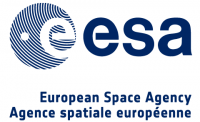›Science and Challenges of Lunar Sample Return Workshop
The Moon is an important exploration destination for ESA and is considered to be the next destination for humans beyond Low Earth Orbit. European access to the lunar surface is most likely to be made through cooperation with international partners and opportunities for international cooperation in the broad area of lunar exploration are being investigated .
Sample return missions are an important element in the future cooperative exploration scenarios under discussion, as a next step after surface missions. They are a means of building international partnerships, developing and demonstrating technologies and capabilities, and performing detailed analyses to answer fundamental scientific questions and address exploration enabling knowledge gaps through analyses which cannot be performed in situ. Such missions may be required to access extreme environments, perform complex surface operations, and handle uniquely demanding sample requirements. Such activities can result in major advances in planetary sciences, astrobiology and the future of exploration.
A Lunar Polar Sample Return mission, envisaged in the early 2020s by Roscosmos, has been identified by ESA as an important cooperative mission opportunity, and as a logical follow-on from a possible European participation to the Luna-Resurs Lander mission planned by Roscosmos before the end of this decade. In addition a human tended deep space capability, as initiated with the Orion vehicle currently developed by NASA in cooperation with ESA, can be of benefit to a sample return mission and may lead to a future integration of robotic and human exploration.
In preparation for these missions it is important to review our current knowledge and understanding of the Moon, establish the scientific and technical goals that should be targeted and the associated challenges that lie ahead. This workshop will explore the possible benefits and scientific return from Lunar Sample Return missions and investigate the implications for future mission systems.
Track this event on your Apple calendar














 Netherlands
Netherlands